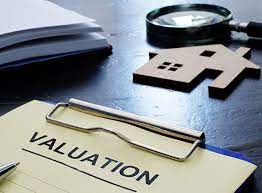
Buying your first home is an exciting milestone, but it can also be a complex and daunting process. This guide will help you navigate the steps involved in purchasing your first property in the United Kingdom.
1. Determine Your Budget:
- Start by assessing your financial situation, including savings and monthly income.
- Calculate how much you can afford as a down payment and how much you can comfortably spend on mortgage repayments.
2. Mortgage Pre-Approval:
- Contact banks and lenders to get pre-approved for a mortgage. This will give you a clear idea of your budget and make you a more attractive buyer.
3. Research Locations:
- Explore different areas where you’d like to buy a home. Consider factors like proximity to work, schools, transport links, and local amenities.
4. Property Type and Size:
- Determine the type of property you want (e.g., flat, house, apartment) and the number of bedrooms and bathrooms you need.
5. Property Search:
- Start your property search online or work with local estate agents who can help you find suitable options.
6. Home Viewing:
- Attend property viewings to get a better idea of the condition and layout of the homes you’re interested in.
7. Legal Process:
- Once you find a property you want to purchase, you’ll need a solicitor or conveyancer to handle the legal aspects of the transaction.
8. Property Valuation and Survey:
- Your lender will require a valuation of the property to ensure it’s worth the asking price. You may also choose to have a more detailed survey done to identify any potential issues.
9. Making an Offer:
- When you’re ready, make an offer on the property. Negotiations may take place, and once both parties agree on a price, you’ll have a legally binding contract.
10. Exchange Contracts:
- You and the seller will sign contracts, and you’ll typically pay a deposit at this stage.
11. Arrange a Mortgage:
- Finalize your mortgage arrangement with your lender. They’ll need to conduct a credit check and ensure you meet their criteria.
12. Complete the Sale:
- Your solicitor will handle the necessary paperwork, and once everything is in order, you’ll complete the sale, pay the remaining balance, and receive the keys to your new home.
13. Moving In:
- Plan your move, set up utilities, and notify relevant parties of your change of address.
14. Stamp Duty Land Tax (SDLT):
- If your property purchase is over a certain threshold, you may need to pay SDLT. Check the current thresholds and rates.
15. Home Insurance:
- Arrange home insurance to protect your new property and possessions.
16. Ongoing Costs:
- Be prepared for ongoing costs like mortgage repayments, council tax, utility bills, and maintenance.
17. Enjoy Your New Home:
- Finally, relax and enjoy your new home. It’s a significant achievement!
Estate Agent

An estate agent, often simply referred to as an “agent,” is a professional who assists individuals and families in buying, selling, or renting properties in the United Kingdom. Estate agents play a pivotal role in the real estate market, serving as intermediaries between property buyers and sellers as big a deposit can.
- Property Valuation: Estate agents provide property valuations to sellers, helping them determine the market value of their homes. This assessment takes into account factors like location, property condition, and recent sales data.
- Property Listings: Estate agents create property listings for homes or commercial properties, showcasing them on their websites, in local newspapers, and on various online property portals. These listings include detailed information and high-quality photographs.
- Marketing: They devise and execute marketing strategies to promote properties, such as open houses, online advertising, and social media campaigns.
- Property Search: For buyers, estate agents help identify properties that meet their specific criteria, including location, price range, and property type. They schedule property viewings and provide advice throughout the search.
- Negotiation: Estate agents negotiate offers and counteroffers between buyers and sellers to help both parties reach a mutually agreeable price and terms.
- Legal Process: They liaise with solicitors and conveyancers to ensure a smooth legal process, including contract preparation, searches, and other legal requirements.
- Chain Management: In transactions involving multiple properties or buyers and sellers, estate agents help manage the property chain, ensuring that all transactions progress smoothly and concurrently.
- Guidance: Estate agents offer guidance to clients at various stages of the buying or selling process, including understanding complex contracts, legal obligations, and financial considerations.
- Property Management: Some estate agents also offer property management services for landlords, including finding tenants, rent collection, and property maintenance.
- Compliance: They adhere to relevant laws and industry regulations, ensuring that property transactions are conducted ethically and legally.
- Market Knowledge: Estate agents stay informed about local property market trends and can provide valuable insights on the best times to buy or sell.
- Local Expertise: They often possess a deep understanding of the local area, including schools, amenities, and transport links, which can be essential for buyers.
Buying a House
Buying a house is a significant financial and life decision.
Mortgage Broker in the UK
A mortgage broker in the United Kingdom is a professional who specializes in mortgage money, helping individuals and families find suitable mortgage loans to finance the purchase of a property. Mortgage brokers act as intermediaries between borrowers and lenders, offering valuable services throughout the mortgage application process.
Here are the key roles and responsibilities of a mortgage broker in the UK:
1. Mortgage Advice:
- Mortgage brokers assess your financial situation and provide expert advice on the types of mortgages available, helping you choose the one that best suits your needs.
2. Access to Lenders:
- They have access to a wide network of lenders, including banks, building societies, and specialist mortgage providers. This allows them to compare mortgage products and find the most competitive rates and terms.
3. Mortgage Product Comparison:
- Mortgage brokers compare various mortgage products, considering factors such as interest rates, fees, and terms, to identify the best options for you.
4. Application Assistance:
- They assist with the mortgage application process, ensuring that all necessary documentation is prepared and submitted correctly to the chosen lender.
5. Credit Checks:
- Mortgage brokers conduct credit checks and assessments to determine your eligibility for different mortgage products. They can also advise on steps to improve your creditworthiness.
6. Mortgage Pre-Approval:
- They help you get pre-approved for a mortgage, which can make you a more attractive buyer in the eyes of sellers and estate agents.
7. Negotiation with Lenders:
- Mortgage brokers can negotiate terms and conditions with lenders on your behalf, potentially securing more favourable deals.
8. Specialist Mortgages:
- They can assist with specialist mortgages, such as buy-to-let mortgages, self-employed mortgages, and adverse credit mortgages, which may require a more tailored approach.
9. Paperwork and Documentation:
- They handle the paperwork involved in the mortgage application, ensuring that everything is accurate and in compliance with legal requirements.
10. Cost Savings:
- Mortgage brokers aim to save you money by finding mortgages with lower interest rates and fewer fees.
11. Ongoing Support:
- They provide support and advice throughout the mortgage application process and beyond, helping you understand your obligations and rights as a borrower.
12. Compliance:
- Mortgage brokers must adhere to financial regulations and ethical standards, ensuring that the advice they offer is in the best interests of their clients.
13. Fees:
- Mortgage brokers typically charge fees for their services. These fees can be paid by the borrower or the lender, and the broker should be transparent about their fees from the beginning.
Mortgage Market in the UK
The mortgage market in the United Kingdom is a crucial component of the country’s real estate and financial sectors. It plays a central role for mortgage lenders in helping individuals and families secure the funds needed to purchase homes.
house buying process
The process of buying a house can be complex and involves several steps. Here’s a more detailed breakdown of step by step guide the house-buying process:
- Assess Your Financial Situation:
- Review your finances to determine how much you can afford for a down payment and monthly mortgage payments.
- Check your credit score and history. Good credit can help you qualify for better mortgage rates.
- Get Pre-Approved for a Mortgage:
- Contact multiple lenders to get pre-approved for a mortgage. Pre-approval will give you a clear idea of your budget.
- Compare different mortgage options, including interest rates, loan terms, and down payment requirements.
- Hire a Real Estate Agent:
- Find a qualified and experienced real estate agent who can assist you throughout the home-buying process.
- Your agent will help you find suitable properties, schedule viewings, and negotiate on your behalf.
- Start House Hunting:
- Work with your real estate agent to identify properties that match your criteria, including location, size, features, and budget.
- Visit homes, attend open houses, and research neighborhoods.
- Make an Offer:
- When you find a home you like, work with your agent to make an offer to the seller.
- Your offer should include the purchase price, earnest money deposit, contingencies (such as a home inspection or financing), and a proposed closing date.
- Negotiate and Acceptance:
- Expect negotiations with the seller, which may involve counteroffers. Your agent will help facilitate this process.
- Once both parties agree to the terms and sign the contract, you have a ratified contract.
- Conduct a Home Inspection:
- Schedule a home inspection with a licensed inspector to evaluate the property’s condition.
- Review the inspection report and negotiate repairs or credits with the seller if needed.
- Secure Financing:
- Work closely with your chosen lender to finalize your mortgage application.
- Complete any required paperwork and provide financial documentation.
- Appraisal and Underwriting:
- The lender will order an appraisal to ensure the property’s value aligns with the loan amount.
- Underwriters will review your application and documents to determine your loan eligibility.
- Obtain Homeowners Insurance:
- Shop for homeowners insurance and secure a policy that meets your lender’s requirements.
- Final Walkthrough:
- Prior to closing, conduct a final walkthrough of the property to ensure it’s in the agreed-upon condition.
- Closing:
- Attend the closing meeting, typically held at an escrow or title company.
- Sign all necessary documents, including the mortgage note and deed.
- Pay any closing costs, down payment, and other fees.
- Receive the keys to your new home.
- Post-Closing Tasks:
- Transfer utilities and services to your name.
- Register your homeownership with local authorities and obtain necessary permits if applicable.
- Set up a maintenance plan for your new home.
Mortgage Valuation

A mortgage valuation, in the context of property purchase in the United Kingdom, is an essential step in the house-buying process. It serves as an evaluation of the property’s worth, primarily for the benefit of the mortgage lender.
1. Purpose of a Mortgage Valuation:
- A mortgage valuation is conducted to ensure that the property’s value aligns with the amount you wish to borrow. It provides the lender with assurance that the property is worth the investment and can serve as collateral for the loan.
2. Appointment of a Surveyor:
- The mortgage lender appoints a chartered surveyor to carry out the valuation. The surveyor is usually a third-party professional who has no vested interest in the transaction. Their role is to provide an impartial assessment of the property’s value.
3. Types of Mortgage Valuations:
- In the UK, there are typically two main types of mortgage valuations:
- Standard Valuation: This is the most basic type of valuation, and it only provides an estimate of the property’s market value. It may not uncover specific issues with the property’s condition or structure.
- Homebuyer’s Report or Building Survey: This is a more comprehensive survey that not only assesses the property’s value but also identifies potential issues and defects. While not mandatory for a mortgage, it can be valuable for the buyer’s peace of mind.
4. Cost of Mortgage Valuation:
- In many cases, the buyer is responsible for covering the cost of the mortgage valuation. The fees can vary depending on the lender and the property’s value.
5. Independence of Surveyor:
- The surveyor is required to be impartial and independent. They should not have any ties to the buyer or seller and must act solely in the interest of the lender.
6. Valuation Report:
- Once the surveyor has completed their assessment, they will provide a valuation report to the lender. This report will include their professional opinion on the property’s value.
7. Impact on Mortgage Offer:
- The outcome of the mortgage valuation can affect the mortgage offer. If the property’s valuation falls short of the agreed purchase price, the lender may offer a lower mortgage amount. The buyer may need to bridge this gap with a larger deposit or negotiate with the seller to lower the price.
8. Buyer’s Interests:
- It’s important to note that a mortgage valuation primarily serves the interests of the lender. While it gives the lender confidence in the property’s value, it may not provide a comprehensive assessment of the property’s condition. Buyers are encouraged to consider additional, more detailed surveys, such as the Homebuyer’s Report or Building Survey, for a more thorough understanding of the property’s condition.
Remember that the process of buying a home can vary depending on your location within the UK, and it’s always a good idea to seek professional advice from a solicitor, financial advisor, or a mortgage lender or broker to ensure a smooth and successful purchase. Good luck with your homebuying journey!
You can find more information on our website, Weatherill Property Group

Recent Comments